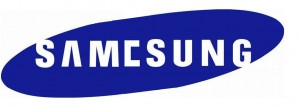In the latest chapter of the Apple vs Samsung Battle, the ruling that Samsung stole Apple’s technology could devastate the Samsung brand–but it may prove just as destructive to the Apple brand.
 Already media wags have been calling the Android phone leader “Samesung.” But Apple could be starting down the path brand ruin. Today Apple has a reputation for being cool and creative, but how cool is it to be the market heavy who stamps out innovation? Apple’s promise “to go thermonuclear” on competitors is not at all cool and definitely is not creative. In winning this round of Samsung vs Apple, Apple might have taken the first step toward Microsoft-izing itself.
Already media wags have been calling the Android phone leader “Samesung.” But Apple could be starting down the path brand ruin. Today Apple has a reputation for being cool and creative, but how cool is it to be the market heavy who stamps out innovation? Apple’s promise “to go thermonuclear” on competitors is not at all cool and definitely is not creative. In winning this round of Samsung vs Apple, Apple might have taken the first step toward Microsoft-izing itself.
On the surface, Samsung sounds like a whiner when it complains about patent law being “manipulated to give one company a monopoly over rectangles with rounded corners.” But there is truth to the complaint. No one likes to see their idea stolen, but there is a difference between protecting an invention and closing out all innovation for an entire category.
Stomping Out Competition Can Hurt the “Winner”
A similar situation 100 years ago damaged the reputation of innovators and ultimately destroyed their business. In 1906, the Wright Brothers patented the general concept of controlling pitch, roll and yaw with U.S. Patent 821393[6] for a “Flying Machine”. So basic was their concept, aircraft could not be flown without it. When Glenn Curtiss invented the aileron, the Wrights threatened to sue. Curtiss countered that the Wrights’ patent was so broad that if someone jumped in the air and waved their arms that the Wrights could sue them and win. Indeed, the Wrights did sue Curtiss (and everyone else) and they did win. Wright patent infringement lawsuits effectively shut down the aeronautical industry in the United States.
The Wrights won the legal battles, but not the war. The Wright Company earned a reputation for being greedy and litigious, and most devastating of all, for producing inferior products. The U.S. government found Wright aircraft were “dynamically unsuited for flying.” At the start of World War I, the United States could not buy any functional American designed and made planes—they had to buy French. By 1916, the Wright Company was out of business.
Who Will Win the Bigger Samsung vs Apple War?
Apple does not now make inferior products, but will lack of competition cause complacency that puts an end to creativity? Apple is admired now for being cool, but will heavy handed attempts to protect its smart phone monopoly make them into the next Microsoft? Apple prevailed in the latest Samsung vs Apple dustup, but at what cost to their brand in the long term? Their “monopoly over rectangles with rounded corners,” might not be so cool in the future. What Isaac Newton said about visionaries also applies to brands: “If I have seen a little further, it is by standing on the shoulders of Giants.”
